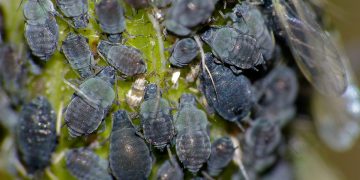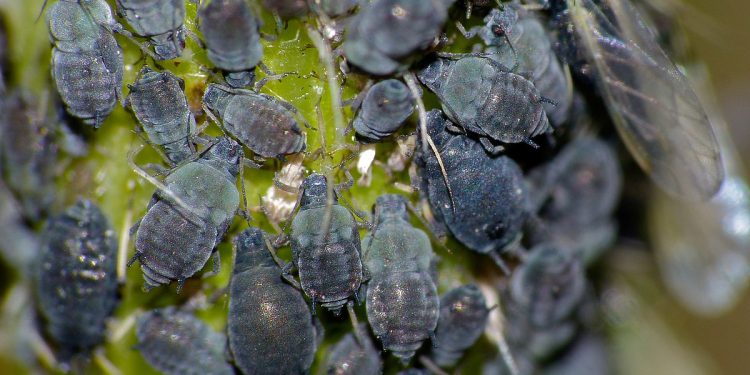AphidControl #PlantPestManagement #NaturalPredators #InsecticidalSoaps #GoodGardeningPractices
Aphids, also known as plant lice, are small, sap-sucking insects that can cause significant damage to plants and crops. They reproduce quickly, so an infestation can quickly get out of control if not addressed promptly. In this article, we will discuss effective ways to control and prevent infestations of Aphis spp.
One of the most important steps in preventing aphid infestations is to promote healthy plant growth. Plants that are stressed or weakened are more susceptible to infestations, so it’s important to provide them with proper nutrition, water, and care. Additionally, regular inspections of plants can help detect aphid infestations early, allowing for quick action.
If aphids are detected, there are several methods of control. One option is to use natural predators such as ladybugs or lacewings, which can feed on aphids and keep their populations in check. Another option is to use insecticidal soaps or oils, which can kill aphids without harming beneficial insects.
To prevent future infestations, it’s important to practice good gardening habits. This includes rotating crops, pruning plants to improve airflow, and removing weeds and debris that can harbor aphids. Additionally, choosing plant varieties that are less attractive to aphids can help prevent infestations.
Overall, controlling and preventing aphid infestations requires a combination of good gardening practices and effective pest management techniques. By taking proactive measures to promote healthy plant growth and using appropriate control methods, gardeners can say goodbye to aphids and enjoy a bountiful harvest.































